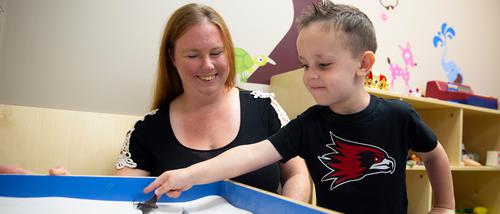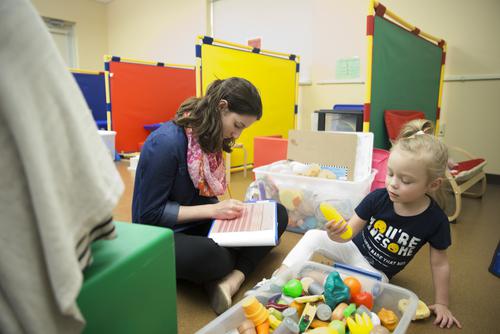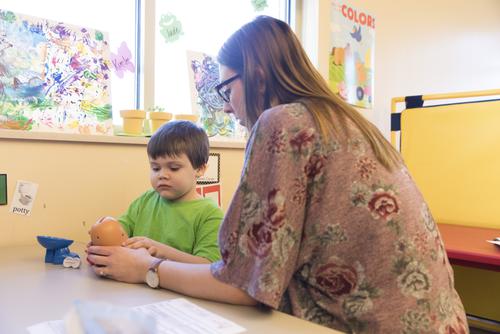You want to help others, influence change in society, and mold the next generation of learners.
Students who earn a degree from the Department of Child and Family Studies at Southeast Missouri State learn the science behind human development, the dynamics of interpersonal relationships, the stages of a child's development and learning, and so much more. From day one, you'll be immersed in hands-on learning experiences in and out of the classroom, developing technical and interpersonal skills to prepare you for a career right after graduation. Don't let life pass you by. Study it.
This department is housed in the College of Education, Health and Human Studies.
Academic Programs
The Department of Child and Family Studies has five majors and minors, so you are certain to find the program to help you achieve your career and personal goals.
Gain knowledge inside and outside the classroom
Learn how you can refine your skills through real-world, hands-on experience in The Department of Child and Family Studies.
Expert Faculty
Join our expert faculty on a journey to grow in your industry. With real-world experience and research-driven knowledge, our faculty are here to support students and help them become career-ready.
"I am a senior Family and Consumer Science (FACS) Education major here at SEMO, with a minor in Interior Design. I started my freshman year at SEMO in 2020 and I was immediately submersed in FACS classes. From the very beginning, to graduating in a couple of months, I have been greeted with the kindest and most supportive professors in all of my classes. With the help of my professors, and advisor, as well as the small but mighty community of classmates also majoring in FACS, I could not have asked for a better college experience. I have thoroughly enjoyed the variety of informational courses that included real-world experiences to help me get to where I am now. As I am ending my college career at SEMO, I am proud to be a Redhawk. Thanks to the FACS program at Southeast Missouri State University, I am excited to announce that I already have a job for next school year teaching Family and Consumer Sciences, specializing in Sewing and Interior Design. I would like to give special thanks to my FACS and education professors at SEMO. I would not be where I am today without your continued support and encouragement to succeed."
Mattie Still
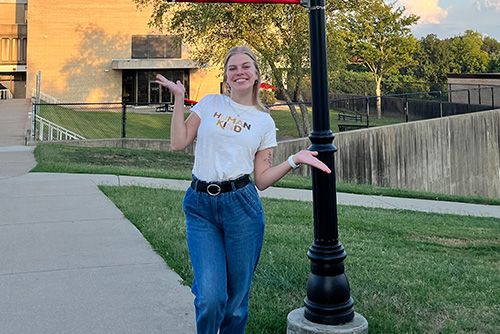
SEMO's degree programs are designed to prepare students for a career. Degrees are developed with program objectives and student outcomes to help students succeed.
The Child and Family Studies program learning objectives reflect nationally recognized professional standards across human development and family science. The program is grounded in:
This integrated foundation supports an applied, preventative, and evidence-based approach to promoting the well-being of children, families, and communities across the lifespan.
Knowledge and Theory: Students will demonstrate a foundation in human development and family studies, including empirical knowledge and major theories, to understand the complexity of individuals and families across the lifespan.
Application to Practice: Students will apply research and theory to real-world contexts such as education, program development, intervention, service provision, and/or policy to promote individual and family well-being.
Critical Thinking: Students will critically assess factors that influence individuals and families, identify needs, and generate evidence-based solutions to address diverse challenges.
Culturally Responsive and Trauma-Informed Practice: Students will demonstrate an informed and responsive understanding of how life experiences and/or challenges shape the well-being of individuals and families.
Professional Integrity: Students will demonstrate preparedness for professional practice through ethical reasoning, professionalism, and effective communication and collaboration with individuals, families, and other professionals.
Family and Consumer Sciences Education program learning objectives are aligned with the Missouri Teacher Standards and the National Standards for Family and Consumer Sciences Education developed by the National Association of State Administrators of Family and Consumer Sciences (NASAFACS).
Content Knowledge and Skills: Students will demonstrate content knowledge and skills in Family and Consumer Sciences.
Teacher Preparation: Students will demonstrate the knowledge, skills, and dispositions necessary for entry-level teaching in Family and Consumer Sciences.
Critical Thinking: Students will demonstrate the ability to problem-solve and make informed judgments.
Professionalism: Students will demonstrate ethical professional behavior and effective working relationships. Students will demonstrate the ability to practice reflexivity, assess areas of needed growth, and seek out appropriate professional opportunities.
"The content that has been discussed in the Family Studies program has been content that is necessary to be successful in the workforce. A class that I would recommend to other students would be ED535, it is important to understand empathy and how to apply it when interacting with individuals that have experiences with trauma. I plan on taking the information learned through the program into my classroom of 2's/3's and helping them as they try to regulate their new emotions. I am so grateful for the support and guidance that the Family Studies program has provided for me over the past four years."
Emily Cummins
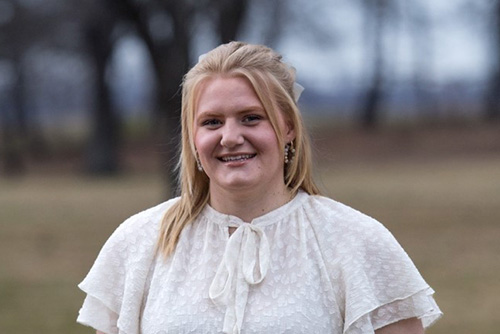
Take the Next Step
"When I was a young girl, I loved to hold babies. As I got older, I enjoyed being around children and toddlers and listening to the crazy things they said. Once I was old enough, I begged my mom to start to babysit in our neighborhood. When I got into high school and was told I needed to start thinking about what I wanted to study in college, it just seemed so natural to me to work with children and go to college to study Child Development. I started working at a preschool near my house after I graduated high school and I have really enjoyed the time I have spent there. People always look at me funny when I say I work at a daycare and they tell me that it sounds like torture, but I find working with children exciting and extremely fun! My favorite age group are the toddlers. Some days are better than others, but in the end, the children all make it worth it. It takes a special person with a big heart to work with children, and I believe I am one of those people."
Kayla Bertani
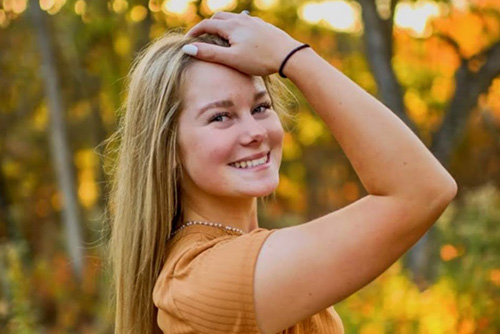
Cape Girardeau, Missouri 63701
